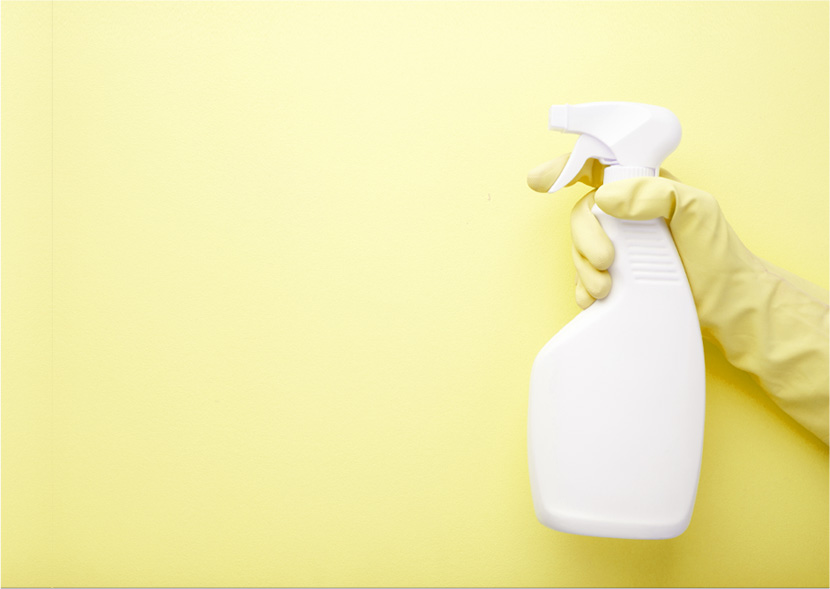Bundle and save! Get $10 off 3 items -OR- $20 off 4 items or more (excludes add ons).
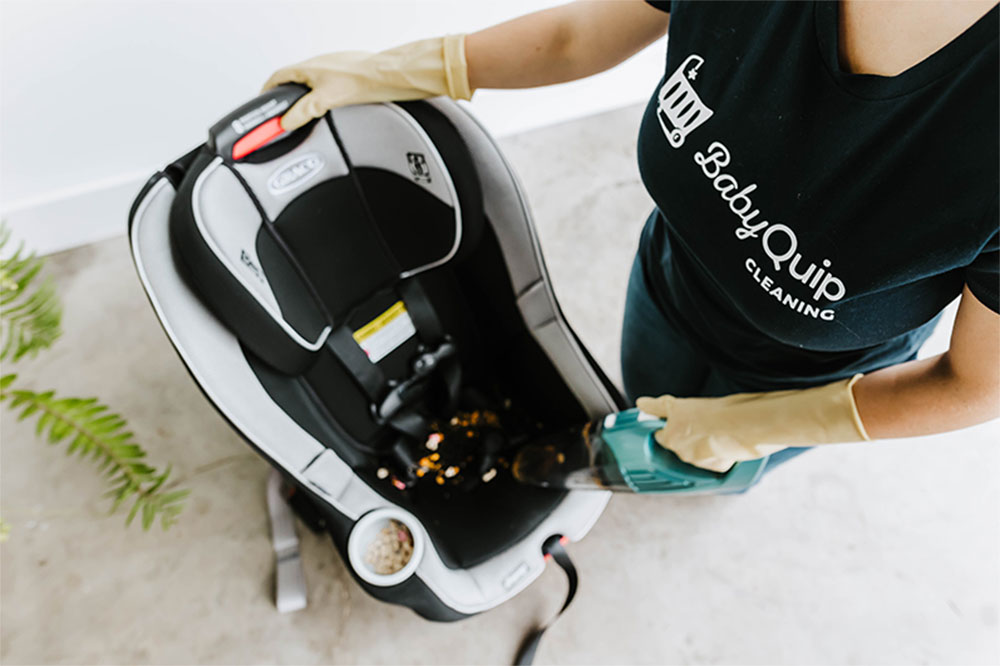
Car Seat Cleaning
At BabyQuip, we take cleanliness and safety very seriously, especially when it comes to cleaning car seats. Car seats must be cleaned in a specific way, so as to not render a seat unsafe. We get asked a lot of questions about our process and want you to know the steps we take to make sure every car seat is well taken care of.
The Certification Process for BabyQuip Quality Providers
To become certified and listed on our site to offer baby gear cleaning services, a Quality Provider is required to pass a background check, complete extensive training, pass quizzes and demonstrate that they have all the tools and skills to perform top-to-bottom cleanings. They also have to thoroughly and effectively clean multiple pieces of gear, before being allowed to handle and clean your baby’s car seat.
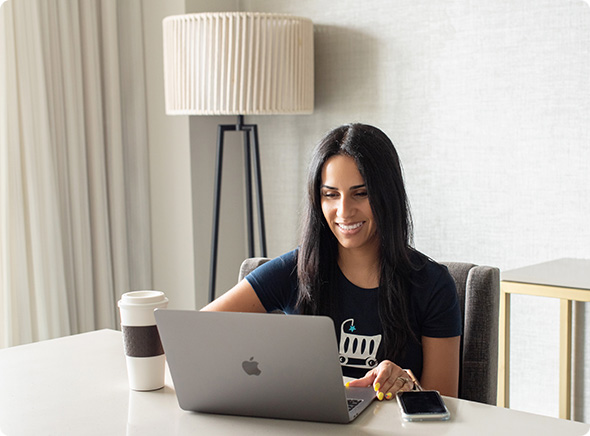
Cleaning Products
We use only natural and car seat safe cleaners that are safe for your little ones. ‘Natural’ doesn’t always mean ‘car seat safe’, and vice versa. For example, vinegar is natural enough to drink, but is not acceptable to use on car seats.
 Castile soap
Castile soap Plant-based and unscented dish soap
Plant-based and unscented dish soap Free and clear laundry detergent
Free and clear laundry detergent Unscented baby shampoo and/or body wash
Unscented baby shampoo and/or body wash
 Bleach
Bleach Lysol
Lysol Peroxide
Peroxide OxiClean
OxiClean Alcohol*
Alcohol* Stain removers
Stain removers Vinegar
Vinegar Steam**
Steam**  Disinfectant wipes
Disinfectant wipes Essential oils or enzyme cleaners (unless otherwise approved by the manufacturer)
Essential oils or enzyme cleaners (unless otherwise approved by the manufacturer)
*70% isopropyl alcohol is acceptable on Evenflo brand car seats only.
**Steam cleaning is acceptable to use on Uppababy brand car seats (spot cleaning on fabric only).
Car Seat Cleaning Process
As certified cleaning experts, QPs are first and foremost required to review the product manufacturer guidelines, best practices and instructions before beginning the process of cleaning any car seat.
They follow a meticulous 4-step cleaning process for each car seat, which may be modified per each brand.
Vacuuming We vacuum from top to bottom, inside all moving parts, hidden seams, covers and straps to remove every last crumb.
Cleaning & Sanitizing We use a combination of warm or cool water and mild detergent or soap (such as Dr. Bronner’s Castile Soap, plant-based and unscented dish soaps, free and clear laundry detergents and unscented baby shampoos or body washes) to remove germs, dirt, stains, bacteria, viruses and impurities from car seats. We take extra caution and care with straps and buckles.
- We NEVER soak, saturate, or submerge harnesses or any straps.
- We NEVER “hose down” or power wash car seats.
- We NEVER use cleaners on the crotch buckle or chest clip (water only).
Drying We are sure to dry any excess water and moisture with microfiber cloths and then let the fabric, the seat frame and the base dry completely. We always thoroughly dry car seats (with fans or sunshine) to prevent rust or mold.
Safe Reassembly We are careful to put all the pieces back together just right.
Steam Cleaning
For the majority of car seat cleanings, we do not use steam. We have met with several manufacturers to ensure that we are cleaning car seats safely and properly and we will continue to work with them as needed and if guidelines change.
Uppababy allows steam cleaning on their car seats (spot cleaning on small areas of fabric only—NEVER on harness or any strap components).
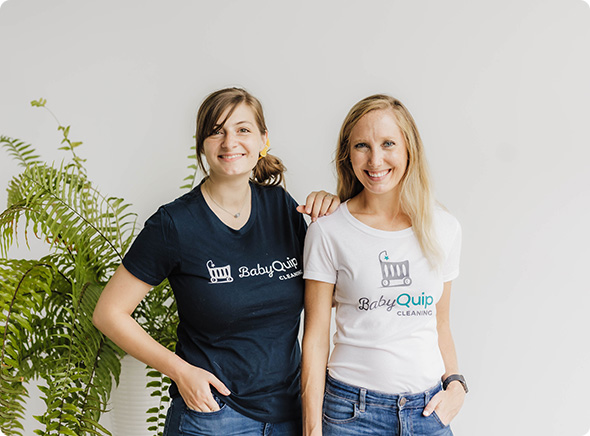
CPSTs (Child Passenger Safety Techs)
We have several CPSTs (Child Passenger Safety Techs) on the QP team (who clean baby gear) who are helping guide the process of car seat cleaning. We provide continued education and support for Quality Providers so they are always up-to-date with the latest safety, product and cleaning standards.
Mold & Car Seats
Unfortunately, we cannot safely clean mold out/off of car seats. Although we can clean the fabric well enough (with our approved products & processes) that the mold is no longer visible, we cannot guarantee that the mold has been killed completely. Mold can quickly regrow if any live spores are left in the fabric. It is not possible to identify a specific mold strain just by looking, and while many strains are harmless, some can be hazardous to babies and children.
We can say with confidence that there are no products strong enough to completely kill mold that are also safe to use during a car seat cleaning.
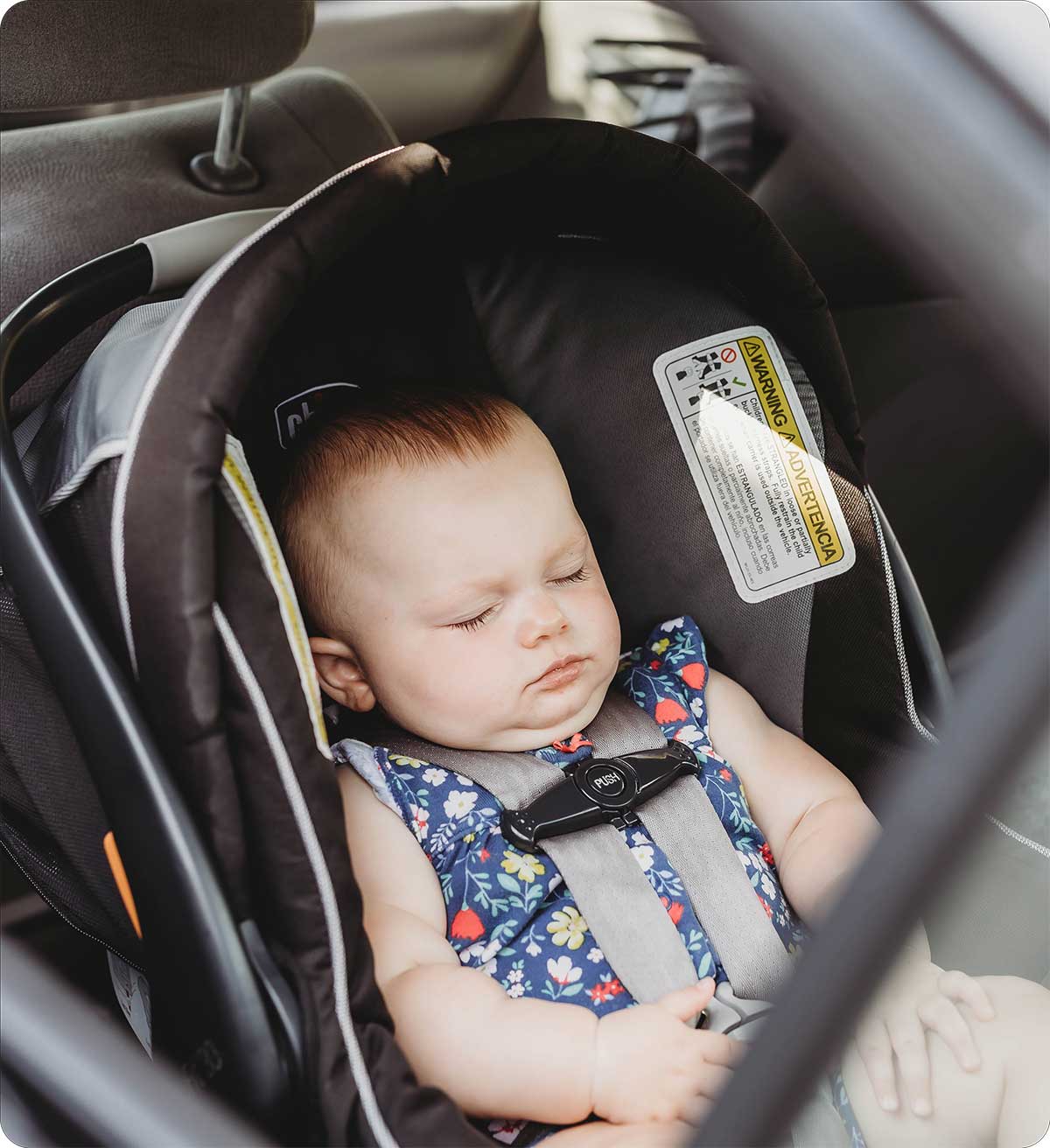
Why is car seat cleaning so strict?
Car seats are designed to keep a child safely restrained in a moving vehicle or in the event of a car accident. There are three main reasons that car seat cleaning is so strict:
Straps & Tensile StrengthCar seat straps/harnesses allow for just enough movement during an accident to slow the child’s movements down, not restrict any movement at all. They are made with the perfect amount of tensile strength that allows for a specific amount of stretch or ‘give’ in the event of a car accident. If the straps get overly saturated or soaked during cleaning they can stretch too much and not go back to the original size. Damage can be done visibly or invisibly to the fibers. If this happens, the straps can become too rigid and not allow for enough movement/stretch during a crash or can stretch too much—both are unsafe.
Car Seat Covers & Flame RetardantsSome manufacturers use materials for car seat covers that are naturally flame retardant (like merino wool), in which there is no added retardant that can be damaged. Some manufacturers, however, add chemicals to the fabric after the fact. Harsh cleaners can remove or damage the retardant.
Because most manufacturers don’t specifically disclose whether their fabrics are naturally flame retardant or have chemicals added, and because fabrics vary so widely even from the same manufacturer, we must assume that using anything other than mild detergent could compromise the seat.
BucklesCrotch buckles and chest clips cannot come in contact with soaps or detergents—even the ‘natural’ and ‘car seat safe’ ones we use to clean car seats. Residue can remain which can lubricate the buckle and could cause it to slip or come unlatched during a car accident. We take care to cover and protect the buckle while cleaning the surrounding straps.
Vomit, Urine, Feces and Other Biohazards
We clean and sanitize car seats (using the processes and products listed above) that are soiled with bodily fluids and solids. As a customer, you are required to choose the BabyQuip Clean package to allow us enough time to thoroughly clean the car seat using safe and proper precautions. Please inquire with your specific cleaner if you have further questions.
Car seat cleaning is a very important subject for many and we do not take it lightly. If you have a question that was not answered on this page, please send an email to [email protected] and we will be happy to help.
